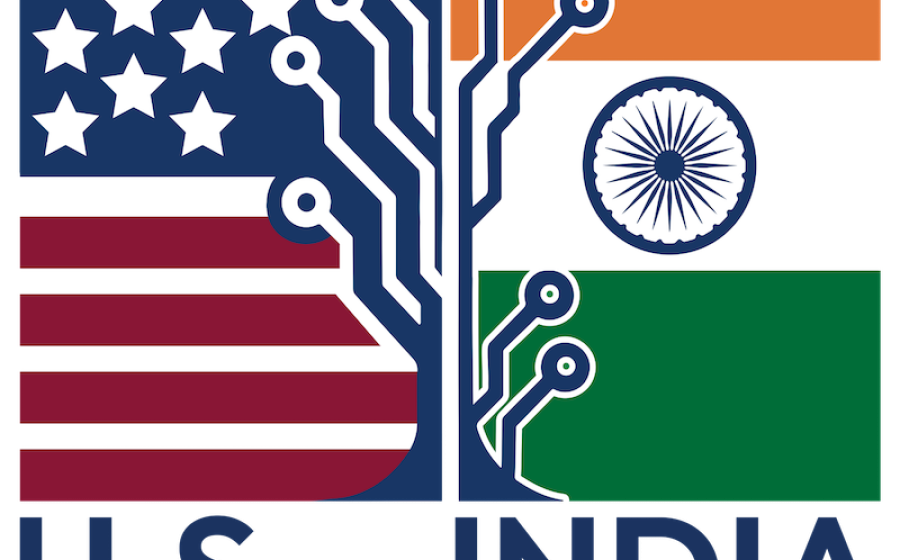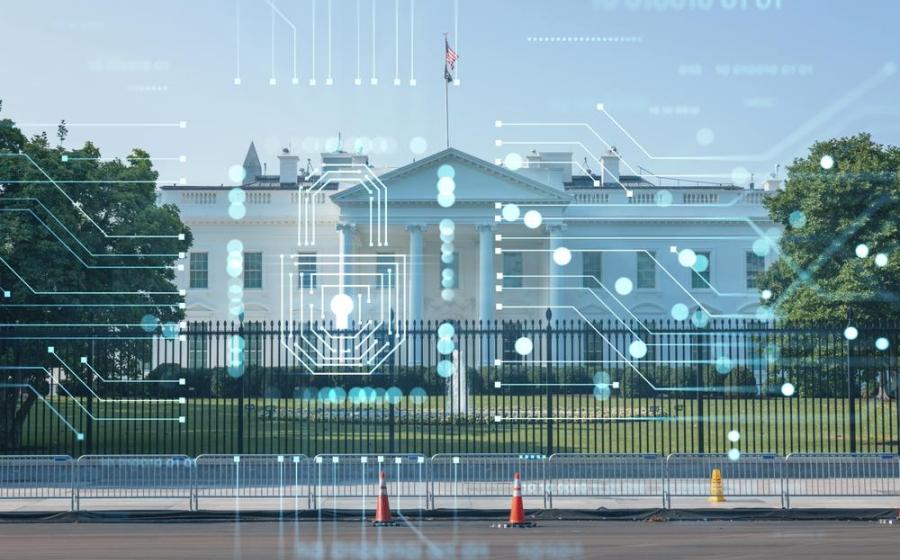What AI Companions Mean for National Security
(NewsUSA) - Artificial intelligence (AI) continues to integrate into our daily lives with the rise of AI “companions,” that are designed to provide users with constant interaction and also may be hijacked by intelligence services from United States adversaries, according to experts at the Special Competitive Studies Project (SCSP), a nonprofit and nonpartisan initiative with a goal of making recommendations to strengthen America's long-term competitiveness in AI.
- Artificial intelligence (AI) continues to integrate into our daily lives with the rise of AI “companions,” that are designed to provide users with constant interaction and also may be hijacked by intelligence services from United States adversaries, according to experts at the Special Competitive Studies Project (SCSP), a nonprofit and nonpartisan initiative with a goal of making recommendations to strengthen America's long-term competitiveness in AI.
Increasing numbers of companies are launching “AI companion” applications that are designed to mimic behaviors of close personal contacts, including a love interest, therapist, coach, or other advisor, and to be inquisitive, sympathetic, and always available.
The “AI Companion” phenomenon marks a significant shift from interaction with AI as a tool to AI as a presence, SCSP experts noted in a recent Substack post.
Unfortunately, there is a darker side to seemingly innocuous AI companions: they offer a new way for America’s adversaries to target vulnerable individuals for recruitment into espionage, or to spread disinformation. For example, foreign adversaries may target Americans who are engaging with AI companions in gaming environments and other online venues. More Americans, notably, young adults, spend more time engaging with AI in gaming and other venues, which opens doors for adversaries to build relationships and trust and convince their new assets to steal secrets.
However, on the flip side, U.S. intelligence can use AI to recruit foreign spies. AI companions can gain trust in three ways:
Sycophantic Loops: Sycophantic loops in Large Language Models (LLMs) refer to AI responses that are excessively agreeable, flattering, or validating of user’s stated opinions or beliefs, whether correct or not. AI prioritizes validating the user over maintaining factual accuracy, and the users may receive supportive information that is incorrect.
Encouraging Self-Disclosure. AI companions are designed to ask questions and express interest in the user’s well-being. In some cases, the AI companion mirrors users’ disclosures by sharing similar “revelations” about similar struggles to building closeness and intimacy.
Creating illusions of privacy. Many people who interact with AI companions assume, often incorrectly, that their information if safe, and the sense of confiding in an anonymous, non-judgmental companion masks the potential for manipulation.
In light of the potential threats to U.S. intelligence, the U.S. Government should design options to mitigate the impact of AI companions, the SCSP experts emphasized. They recommend several strategies including banning the use of AI companions from countries of concern to U.S. intelligence, including China, Russia, Iran, and North Korea; publicizing the national security risks of AI companions; requiring app stores that host AI companion apps to label their development locations; and exploring how to use AI companions for our own foreign intelligence gathering.
For more information and to read the full post, visit scsp.ai.



 - The new captains of China’s growing space industry are riding the new wave of a hybrid technology ecosystem that combines the size and infrastructure of large, state-owned space-oriented businesses and the nimble innovation of startups, according to a new report from the Special Competitive Studies Project (SCSP), a nonprofit and nonpartisan initiative with a goal of making recommendations to strengthen America's long-term competitiveness in AI.
- The new captains of China’s growing space industry are riding the new wave of a hybrid technology ecosystem that combines the size and infrastructure of large, state-owned space-oriented businesses and the nimble innovation of startups, according to a new report from the Special Competitive Studies Project (SCSP), a nonprofit and nonpartisan initiative with a goal of making recommendations to strengthen America's long-term competitiveness in AI.
 - Artificial intelligence is poised to be a game-changer in managing the increasingly congested and potentially contested domain of space, from Earth’s orbit to the Moon and beyond, according to a new podcast from the Special Competitive Studies Project (SCSP), a nonprofit and nonpartisan initiative with a goal of making recommendations to strengthen America's long-term competitiveness in AI.
- Artificial intelligence is poised to be a game-changer in managing the increasingly congested and potentially contested domain of space, from Earth’s orbit to the Moon and beyond, according to a new podcast from the Special Competitive Studies Project (SCSP), a nonprofit and nonpartisan initiative with a goal of making recommendations to strengthen America's long-term competitiveness in AI.
 - Emerging sophisticated artificial intelligence (AI) is poised to drive the most profound changes to the world of spy craft since the advent of the internet, according to experts at the Special Competitive Studies Project (SCSP), a nonprofit and nonpartisan initiative with a goal of making recommendations to strengthen America's long-term competitiveness in AI.
- Emerging sophisticated artificial intelligence (AI) is poised to drive the most profound changes to the world of spy craft since the advent of the internet, according to experts at the Special Competitive Studies Project (SCSP), a nonprofit and nonpartisan initiative with a goal of making recommendations to strengthen America's long-term competitiveness in AI.
 - The United States and India sit front and center in the global emerging technology competition, and a recent meeting have sparked promising collaboration.
- The United States and India sit front and center in the global emerging technology competition, and a recent meeting have sparked promising collaboration.
 - Until now, one of the most widely used Internet of Things (IoT) networks has operated quietly behind the scenes, powering smart cities, tracking shipments, and protecting public spaces. For years, it has connected the world around us and now, the same technology that powers smart cities is starting to enter your home.
- Until now, one of the most widely used Internet of Things (IoT) networks has operated quietly behind the scenes, powering smart cities, tracking shipments, and protecting public spaces. For years, it has connected the world around us and now, the same technology that powers smart cities is starting to enter your home.
 - As autonomous vehicles (AV) continue to evolve, consumers may be on the cusp of a new age of autonomous mobility, according to experts at the Special Competitive Studies Project (SCSP), a nonprofit and nonpartisan initiative with a goal of making recommendations to strengthen America's long-term competitiveness in AI.
- As autonomous vehicles (AV) continue to evolve, consumers may be on the cusp of a new age of autonomous mobility, according to experts at the Special Competitive Studies Project (SCSP), a nonprofit and nonpartisan initiative with a goal of making recommendations to strengthen America's long-term competitiveness in AI.
 - Obscure lawsuits don’t just hurt corporations—they can hit consumers’ wallets and limit their choices.
- Obscure lawsuits don’t just hurt corporations—they can hit consumers’ wallets and limit their choices.
 - The federal government’s release of America’s AI Action Plan marks the most consequential artificial intelligence policy development of the current administration to date, according to experts at the Special Competitive Studies Project (SCSP), a nonprofit and nonpartisan initiative with a goal of making recommendations to strengthen America's long-term competitiveness in AI.
- The federal government’s release of America’s AI Action Plan marks the most consequential artificial intelligence policy development of the current administration to date, according to experts at the Special Competitive Studies Project (SCSP), a nonprofit and nonpartisan initiative with a goal of making recommendations to strengthen America's long-term competitiveness in AI.
 - Commercial auto insurance and fleet safety are meeting the demands of modern-day risk management by analyzing telematics, but more work is needed to optimize this information and put it into action in the industry, according to results of a new report from SambaSafety, the leading provider of cloud-based driver risk management solutions.
- Commercial auto insurance and fleet safety are meeting the demands of modern-day risk management by analyzing telematics, but more work is needed to optimize this information and put it into action in the industry, according to results of a new report from SambaSafety, the leading provider of cloud-based driver risk management solutions.

